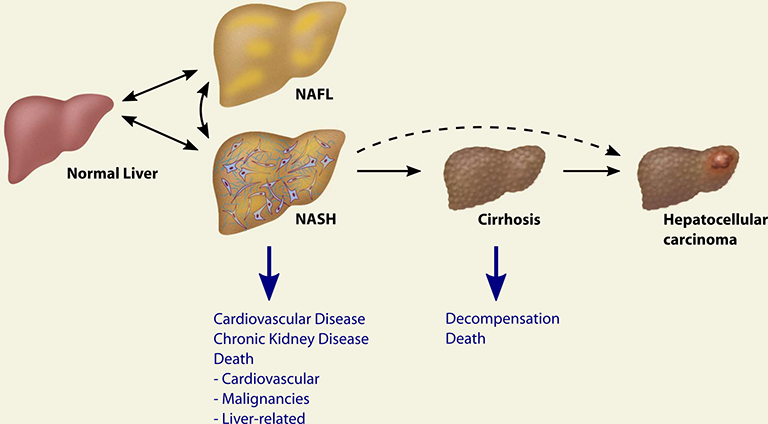HSD17B13 (Hydroxysteroid 17-Beta Dehydrogenase 13)
Jan 23, 2019
HSD17B13, a member of a large family of 17β-hydroxysteroid dehydrogenases, gained a sudden fame recently. A genetic study in 2018 discovered that a genetic variant is associated with a reduced risk for chronicle liver diseases, including NAFLD (non-alcoholic fatty liver disease) and NASH (non-alcoholic steatohepatitis). More studies indicate the progress of NASH to HCC can also be reduced by the presence of the variant.

Clin Gastroenterol Hepatol 2015;13(4):643-54.e1
The mutation of interest is a splice variant rs72613567:TA in the gene coding for HSD17B13. It produces an unstable variant and cause loss-of-function. The variant was reported not only to be associated with a reduced risk for developing alcohol-related cirrhosis, but also for developing HCC among the cirrhosis patients.
This discovery brings more needs to study the function of HSD17B13, its function, its interacting proteins and its detection.
OriGene provides comprehensive tools for HSD17B13 study.
- HSD17B13 Purified Protein
- HSD17B13 Lentiviruses
- HSD17B13 Antibodies
- HSD17B13 Expression Verified ORF Clones
- HSD17B13 shRNA
Other genes potentially related to chronicle liver diseases
- A Protein-Truncating HSD17B13 Variant and Protection from Chronic Liver Disease. March 22, 2018 N Engl J Med 2018; 378:1096-1106
- Carriage of HSD17B13 rs72613567TA is associated with a reduced risk for developing hepatocellular carcinoma in patients with alcohol-related cirrhosis. Z Gastroenterol 2019; 57(01): e25


 United States
United States
 Germany
Germany
 Japan
Japan
 United Kingdom
United Kingdom
 China
China
